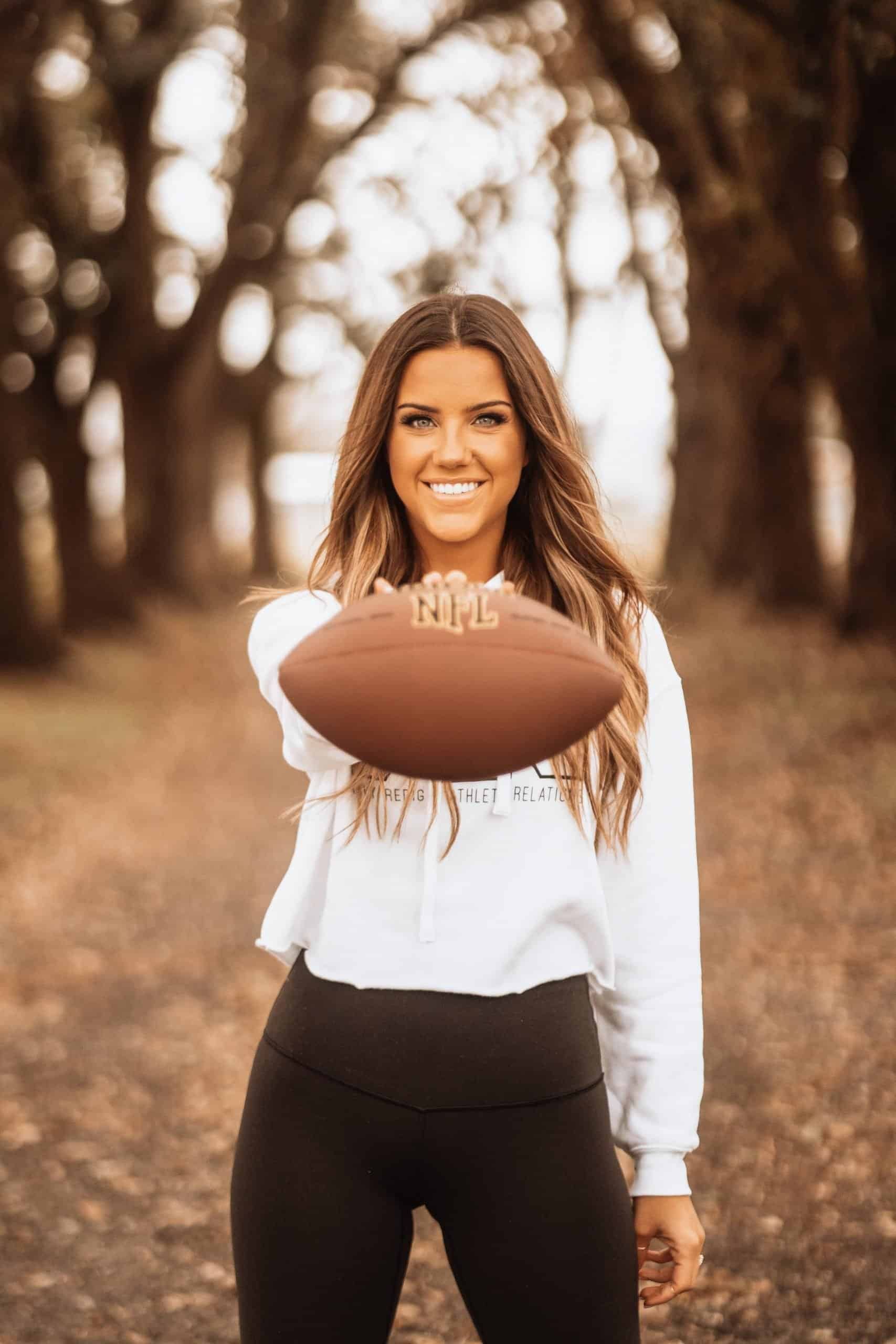Ally Redig knows it’s difficult enough to get a foot in the door in sports, particularly for women. It’s even more difficult when you’re trying to establish your own business within the industry. Yet, it’s something she has successfully done, and her business continues to grow by the day.
What is Ally Redig Athlete Relations? And what does “athlete relations” even mean, anyway?
Ally Redig describes her company as a lifestyle management company that helps professional athletes and other women in sports make their lives on and off the field easier and more organized. She founded the business in 2018 when she noticed a need for athletes to have a person to fall back on to make all the chaos, well, a little less chaotic.
“I created it because I realized how many players normally didn’t have anybody to help them become more organized with everything,” she said. “Somebody to be able to handle everything that was happening off the field. A lot of them, if they did have somebody, sometimes it was the wrong person and things were getting missed. Missed opportunities, missed paid opportunities — things like that. I wanted to be able to help them maximize the benefits that should come along with being a professional athlete.”
Redig’s client list includes names like Atlanta Falcons wide receiver Laquon Treadwell, Cleveland Browns linebacker Tae Davis, Houston Texans safety Michael Thomas, and Tampa Bay Buccaneers wide receiver John Franklin III.
Organization is everything
Typical days for Ally Redig are nothing short of busy, which, in turn, helps make her clients’ lives much less busy than they have to be. It’s half outreach/half connecting with clients.
“Normally in the morning, it’s mostly reminders,” she said. “It’s a lot of checking in on things that were already booked or doing new bookings, making itineraries, checking to see what other paid opportunities are out there, connecting with brands. Also helping facilitate interviews for the guys. So, I’d say it’s half outreach and working on those kinds of things and half connecting with clients.”
Featured | Women In Sports: Savanah Matney looks to expand career during trying times
Redig says her upbringing partially helps her since both of her parents were in sales positions.
“So, I had two very strong role models,” she said. “They didn’t work in sports, but they were obviously good people to get ideas from. Most of my mentors in the industry, other females, other agents in the industry, I would just ask them questions and formulate a plan and do everything the right way.”
Like so many other business owners across several industries, Ally Redig was not spared from the scare that came with the global health situation.
“Honestly, at this point, the biggest milestone has got to be surviving COVID,” she said. “It’s sad that so many businesses had to close and don’t have clients and the income to stay open. We’re fortunate enough that our clients stayed on and still needed our help in navigating through things in this ‘new normal’ state of the world.”
Ally Redig on dealing with harassment
It’s easy to see that the issue of women in sports comes up on a frequent basis in today’s society. The movement gains momentum for a while, but the root problem remains.
“It’s a horrible thought, but in today’s world, you’re more surprised to find women in sports who haven’t dealt with some form of harassment,” she said.
Featured | In Their Own Words: Women in sports media speak out
Ally Redig says she’s dealt with harassment both internally and externally when it comes to clients and outside connections.
“I’ve dealt with it from people that we’ve worked with, on the corporate side, comments made on phone calls,” she said. “I’ve also had it from the client side. Obviously, those aren’t clients I’m actively working with. Comments like, well, ‘is X, Y, and Z included in your services?’ It’s just completely uncalled for and completely disgusting. Things like that are unfortunately so common. There are a lot of things that have come out this year, and I’m so proud of those women for standing up for themselves and saying something because I know that can be hard, especially in a work setting.”

